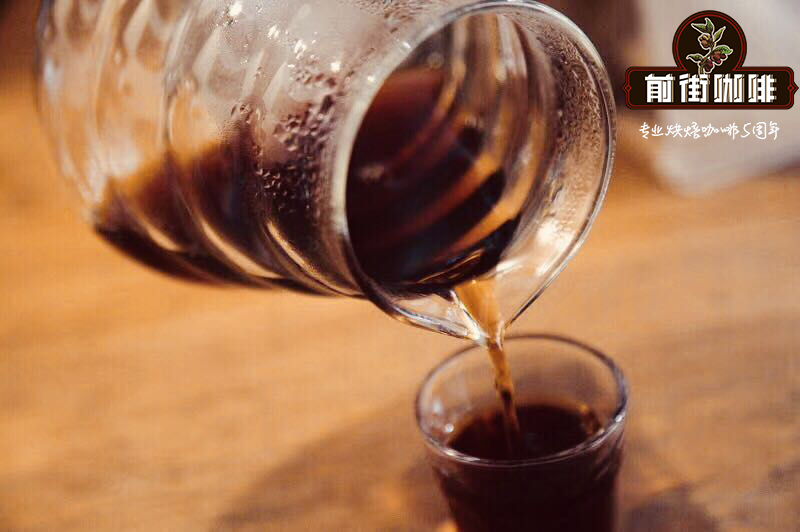Introduction to SL28 dried grapes in Central American Coffee producing area-Galaclajas Manor in Costa Rica

Professional coffee knowledge exchange more coffee bean information please follow the coffee workshop (Wechat official account cafe_style)
Qianjie-brief introduction to SL28 grape drying in Las Lajas Manor, Costa rica
Francisca and Oscar Chac ó n are the third generation operators of Las Lajas. Las Lajas is located in the foothills of Sabanilla de Alajuela Po á s Volcano in the Central Valley. The Chac ó n family has been growing coffee since their grandparents for more than 80 years. When Oscar's father died of cancer in 1995, they suspected that the chemical fertilizers and pesticides used on the farm were the culprits. They no longer used toxic chemicals and required all processes to be planted and fertilized in accordance with organic standards. use organic compost, while extending organic standards to soil, shade trees and washing plant procedures, using ecologically friendly natural farming methods and shade planting in native forests.
After five years of organic cultivation, until the soil, leaves, and fruit analysis are qualified, in 2000, Lajas became the first organic certified manor in Costa rica, and the Lajas manor has passed the Japanese JAS, American USDA and NOP organic certification. After passing the organic certification, the couple went a step further and began to set up their own treatment plant. In the past, they could only send cherries from the farm to large commercial processing plants, but the post-processing process could not be controlled. Some washing plants handled their own coffee, and the overall quality was greatly improved.
Innovative tanning method-dried grapes (Raisin): combine black pearl and black soul, the whole process of shade drying for more than three weeks. First of all, it was laid flat on the cement floor in the greenhouse, piled into a hill in the afternoon, covered with plastic cloth for shade, and then spread flat in the next morning. About a week or two later, it was changed to the shade of the African scaffolding under the greenhouse. There are two sets of the upper and lower layers of this African shelf. Every day, the upper and lower cycle changes the position, which will make the coffee beans dry evenly until the end of processing, so that the fermentation cycle is higher. The sweetness and flavor complexity of coffee beans are greatly improved.
SL28 grape drying in Las Lajas Manor, Costa rica
Production area: Central Valley
Planting altitude: 1300-1500 m
Variety: SL28
Type of soil: volcanic soil
Grading standard: SHB
Treatment: dried grapes in the sun
Harvesting method: manual harvesting
Related certification: JAS, NOP, USDA
The manor was founded in 1840.
Acreage: Nipple A
Manor size: 38 hectares
Average annual temperature / rainfall: 20 ℃ / 2500-2700 mm
Dried incense: walnut, cream, blueberry
Wet fragrance: wine, blackcurrant
Sipping: ripe grapes, plums, litchi, caramel
Knowledge: in 1729, coffee trees were transplanted from Cuba to Costa Rica, opening a chapter in the cultivation of Arabica coffee trees in Costa Rica.
In short: Qianjie is a coffee research hall, happy to share the knowledge about coffee with you, we share unreservedly just to make more friends fall in love with coffee, and there will be three low-discount coffee activities every month. The reason is that Qianjie wants to make more friends drink the best coffee at the lowest price, which has been Qianjie's tenet for 6 years!
END
Important Notice :
前街咖啡 FrontStreet Coffee has moved to new addredd:
FrontStreet Coffee Address: 315,Donghua East Road,GuangZhou
Tel:020 38364473
- Prev

Indonesian Sulawesi Coffee beans-Kalosi Duraga Royal Treasure, Sulawesi Island, Indonesia
Professional coffee knowledge exchange more coffee bean information please follow the coffee workshop (Wechat official account cafe_style) front street-Indonesia Sulawesi Island Karosi Duraga brief introduction Indonesia Sulawesi Island (Sulawesi) formerly known as Celebes Island, by area ranking is the world's 11th largest island, the integration of multi-ethnic culture, celebes this is the meaning of rapids
- Next

Central American Coffee producing area-introduction of SL28 raisin Solar in Ras Lajas Manor, Costa Rica
Professional coffee knowledge exchange more coffee bean information please follow the coffee workshop (Wechat official account cafe_style) front street-Costa Rica La La Haas estate SL28 raisin sun introduction Francisca and Oscar Chacn couple, is the third generation operator of Las Lajas, Las Lajas is located in the foothills of Sabanilla de Alajuela Pos Volcano in the Central Valley
Related
- Beginners will see the "Coffee pull flower" guide!
- What is the difference between ice blog purified milk and ordinary milk coffee?
- Why is the Philippines the largest producer of crops in Liberia?
- For coffee extraction, should the fine powder be retained?
- How does extracted espresso fill pressed powder? How much strength does it take to press the powder?
- How to make jasmine cold extract coffee? Is the jasmine + latte good?
- Will this little toy really make the coffee taste better? How does Lily Drip affect coffee extraction?
- Will the action of slapping the filter cup also affect coffee extraction?
- What's the difference between powder-to-water ratio and powder-to-liquid ratio?
- What is the Ethiopian local species? What does it have to do with Heirloom native species?

